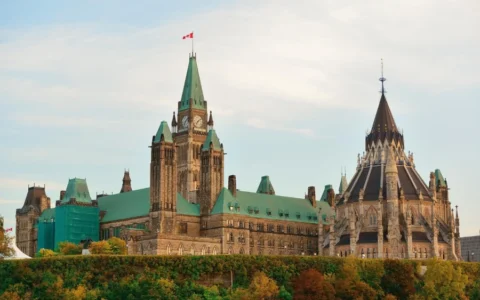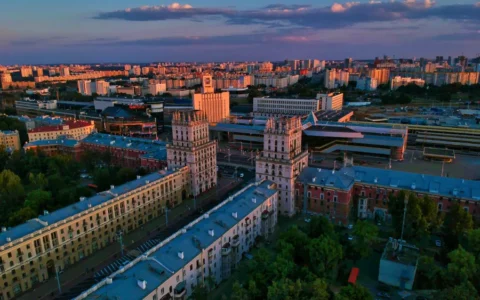The Malaysian government’s efforts to rejuvenate the “Malaysia My Second Home” (MM2H) residency visa program are facing significant hurdles. Despite its previous success in attracting foreign retirees, the recent overhaul of the program’s rules, requiring compulsory property purchases, has significantly dampened interest. This program revamp, effective from June 2024, mandates that all applicants must buy property in Malaysia and hold it for a minimum of ten years, a stipulation that has led to considerable dissatisfaction among potential applicants.
New Challenges and Regulations
The latest adjustments introduced a new category of visas tailored for residents in special economic or financial zones, like the upcoming developments in Johor. However, industry experts and potential applicants alike remain skeptical about the demand revival for the MM2H scheme. Mohamed Shabir, a British national and prospective retiree, exemplifies the sentiment by opting to explore other countries like Thailand and Indonesia, citing the rigid property holding requirement as a major turn-off.
The revised MM2H guidelines now demand bank deposits ranging from US$150,000 to US$1 million, alongside the property purchase. The property’s minimum value varies by visa category, from RM600,000 to RM2 million. This change has led to a dramatic drop in interest, with agencies reporting a decrease from 500 to less than 50 interested applicants due to the stringent new rules.
Economic Implications
When initially launched in 2002, MM2H successfully attracted 48,471 foreign retirees, significantly contributing an estimated RM58 billion to the Malaysian economy over 17 years. However, the 2021 modifications, which increased investment requirements and altered visa conditions, coupled with the latest changes, have already led to an estimated RM9 billion loss to the economy from 2020 to 2023.
Government’s Perspective and Future Outlook
Despite the tepid response, the Malaysian government aims to attract high-net-worth individuals and digital nomads to revitalize the local property sector and bolster the economy. Yet, experts like Dr. Geoffrey Williams argue that the restrictive nature of the new scheme may only attract a minimal number of expatriates, thus providing limited economic benefits.
The special economic and financial zones, offering a lower bank deposit requirement and no minimum property value (subject to future guidelines), might seem appealing at first. However, restrictions like mandatory purchases from specific developers and limited location choices further diminish the scheme’s attractiveness.
Competitive Regional Landscape
Malaysia faces stiff competition from neighboring countries with similar schemes. Thailand’s Long Term Residence Visa program and Indonesia’s 10-Year Visa Second Home scheme offer more flexibility and have been more favorably received by the expatriate community.
In summary, the MM2H program’s stringent new property purchase requirements and the government’s miscalculation of foreign interest in Malaysian real estate are likely to hinder the program’s success, potentially leaving many properties unsold and undermining the intended economic benefits of the scheme.
Rising Concerns Among UK’s Wealthy Non-Doms Lead to Considerations for Exit
Category: Corporate & Fiduciary
As Britain faces political shifts, many of the nation’s wealthiest, like Nigerian-Lebanese entrepreneur Bassim Haidar, are exploring exit strategies due to proposed changes in tax regulations. The Labour Party’s recent electoral victory and its plans to abolish favorable tax conditions for non-domiciled residents (non-doms) have heightened worries among the affluent about increased tax liabilities on their global incomes.
Proposed Changes and Impact
The Labour government intends to end inheritance tax breaks on overseas trusts held by non-doms, a decision that significantly influences the financial planning of wealthy foreign residents in the UK. These non-doms, who currently enjoy reduced tax obligations on foreign earnings, could face higher taxes, prompting them to consider relocation to more tax-lenient jurisdictions like Monaco or Greece.
UK’s Changing Appeal
Despite the UK’s longstanding allure as a global financial hub with its stable economy and strong legal framework, recent political and fiscal reforms have started to tarnish its reputation. The continuous political upheaval post-Brexit and the frequent change in leadership have further destabilized the nation’s appeal to global investors and the wealthy elite.
The Non-Dom Controversy
Non-domiciled status in the UK, which dates back to 1799, allows some residents to limit their tax exposure to UK-based income only, thereby attracting many wealthy individuals to the country. However, this status has been under scrutiny, and recent legislative changes have aimed to tighten these rules, significantly reducing the number of non-doms.
Economic Contributions and Concerns
Despite the decline in non-dom numbers, those remaining contribute substantially to the UK’s tax revenue, with recent figures showing contributions exceeding £8 billion annually. The potential exodus fueled by the latest tax reforms could thus have significant implications for the UK economy, with losses not only in direct taxes but also in broader economic contributions from these high-net-worth individuals.
Looking Ahead
With the changes likely to be implemented next year, there is still time for the government to negotiate and perhaps recalibrate its approach to retain these wealthy residents. The uncertainty has led some, like Haidar, to pause their investment plans and consider their positions carefully, reflecting the broader concerns of the non-dom community.
In conclusion, as the UK navigates these changes, the impact on its reputation as a wealth management hub remains to be seen. The outcome will hinge on the government’s ability to balance tax reforms with the need to maintain a welcoming business environment for international investors.






